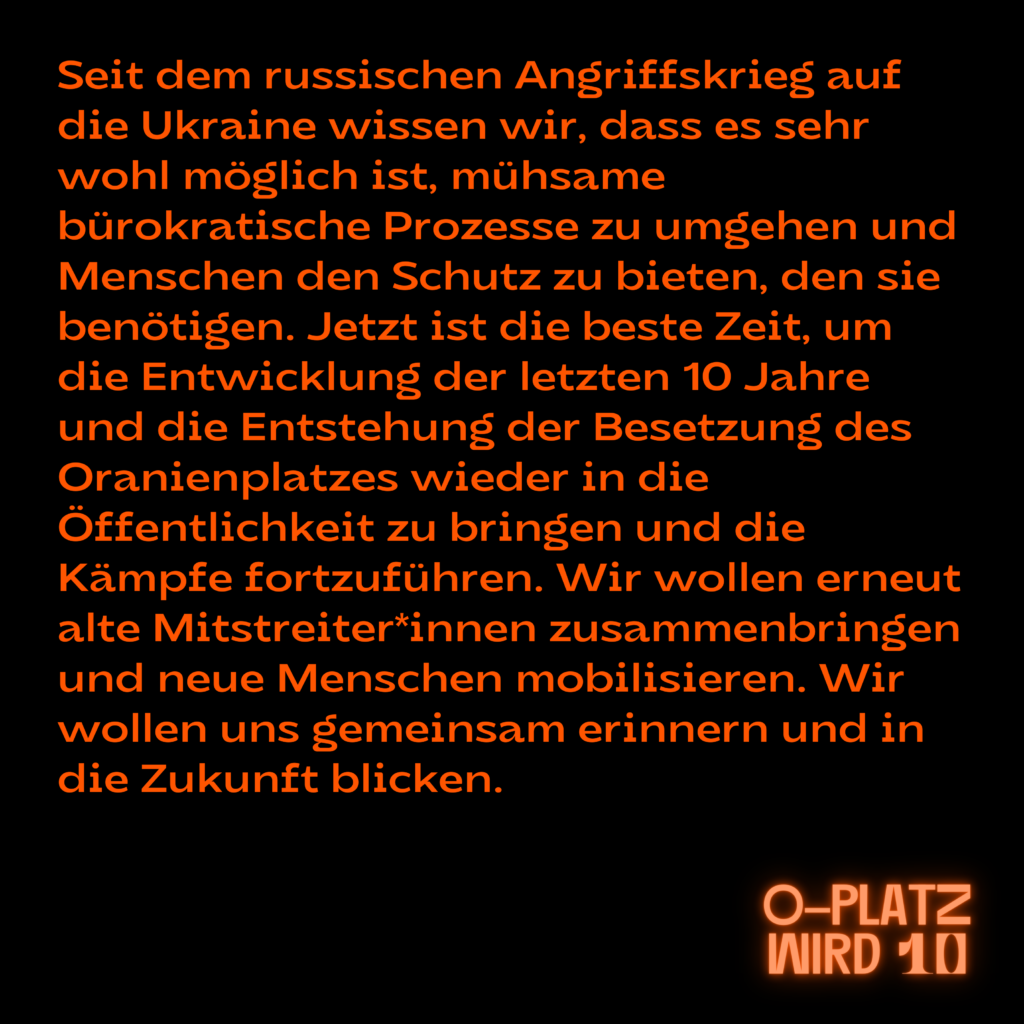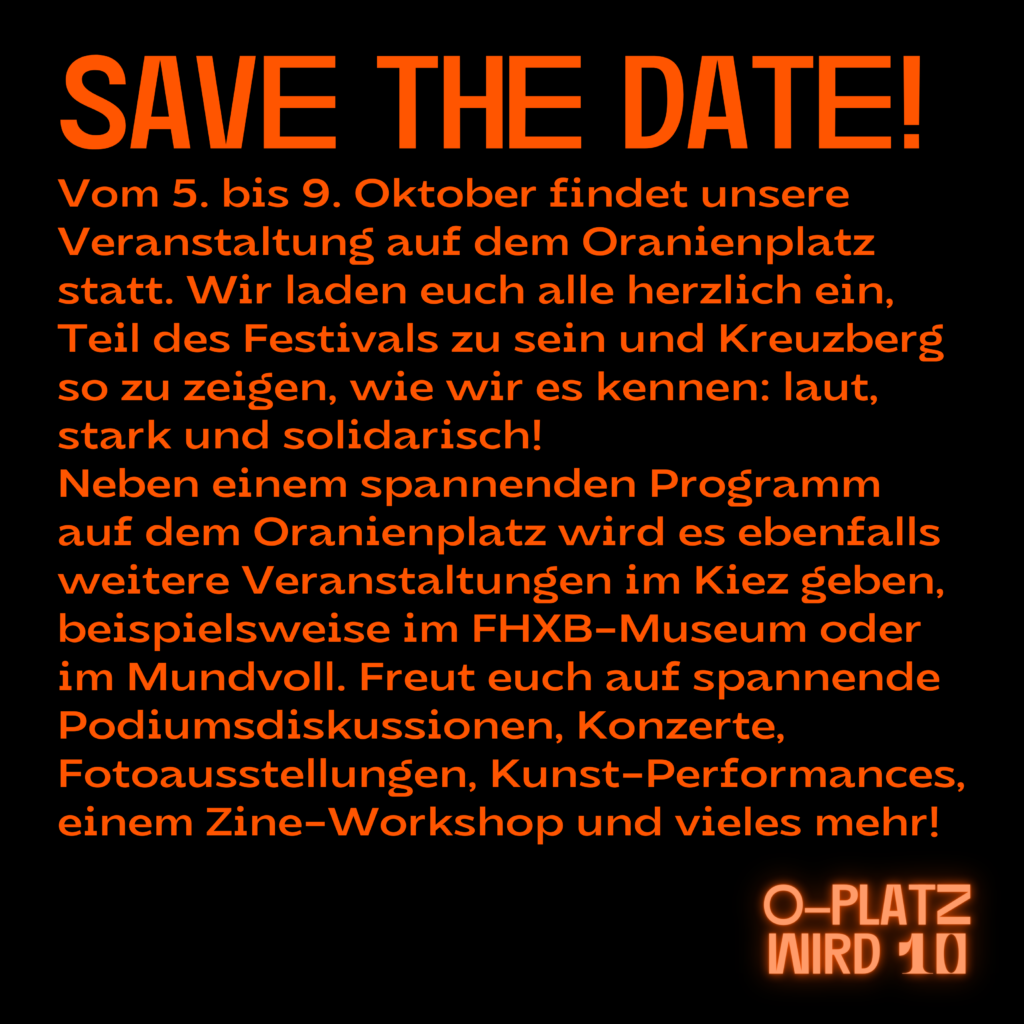Vor 10 Jahren wurde der Kreuzberger Oranienplatz und später dann auch die Gerhart-Hauptmann-
Schule in der Ohlauer Straße besetzt. Anlässlich dieses Jubiläums wollen wir uns vom 5.10. – 9.10. auf dem Oranienplatz versammeln und die Geschichte der rebellischen Geflüchteten-Bewegung feiern.
Mit einer fünftägigen Open-Air-Kunstbaustelle zeigen wir die Geschichte des Refugee-Resistance-
Movements und die zahlreichen Facetten der Kämpfe, die auf und um den O-Platz geführt wurden. Menschen, die damals wie heute in der Bewegung aktiv sind und auf dem O-Platz präsent waren, werden ein Festivalprogramm mit Theater, Grafik, Malerei, Literatur, Fotografie und Film gestalten, in dem wir auf vielfältige künstlerische Weise die Stationen des Widerstands nachzeichnen: vom langen Marsch nach Berlin bis hin zur schändlichen Räumung des Camps durch den Berliner Senat
und den Bezirk.
Zehn Jahre nach dem Beginn der Besetzung des O-Platzes wollen wir aber nicht nur unsere Geschichte feiern, sondern auch einen Vorschlag für eine Gesellschaft unterbreiten, die sich als vielfältig, postkolonial, basisdemokratisch und postmigrantisch versteht.
Unser Widerstand lebt. O-Platz lebt.





O-Platz turns 10 – Migration construction site (05.10.-09.10.22)
10 years ago the Oranienplatz in Kreuzberg and later also the Gerhart Hauptmann School in Ohlauer Straße were occupied. To mark this anniversary, we want to gather at Oranienplatz from 5/10 – 9/10 and celebrate the history of the rebellious refugee movement.
With a five-day open-air art “construction site”, we will show the history of the Refugee Resistance
Movement and the many facets of the struggles on and around O-Platz. People who were active in the movement then and now and were present on O-Platz are creating a programme with theatre, graphics, painting, literature, photography and film, in which we trace the stages of the resistance in a variety of artistic ways: From the long march to Berlin to the shameful eviction of the camp by the Berlin Senate and the district.
Ten years after the beginning of the occupation of O-Platz, however, we not only want to celebrate our history, but also make a proposal for a society that sees itself as diverse, postcolonial, grassroots democratic and postmigrant.
Our resistance is alive. O-Platz is alive.






